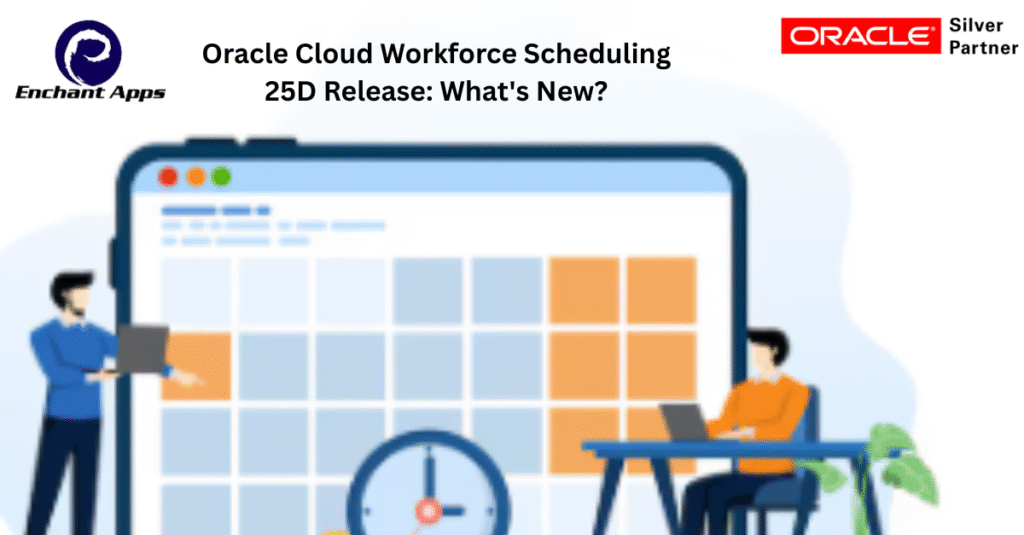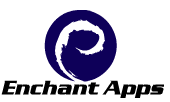The Oracle Fusion Cloud 25D release introduces several AI-driven enhancements to Workforce
Scheduling, focusing on smarter shift planning, employee empowerment, and operational
efficiency. These updates leverage embedded AI agents to provide personalized guidance for
managers and workers, integrating seamlessly with other Workforce Management tools like
Time and Labor. Core functionalities, such as optimized scheduling for labor costs and
compliance, remain robust, with new features emphasizing proactive, predictive planning.

Key Enhancements
Embedded AI Agents for Scheduling Guidance
New AI agents deliver real-time, personalized recommendations to managers during shift
creation and adjustments. These agents analyze employee availability, preferences, skills, and
historical data to suggest optimal schedules, flagging potential conflicts (e.g., overtime risks or
compliance violations) before they occur. Employees receive proactive notifications via mobile
or desktop for self-scheduling opportunities, such as claiming open shifts or proposing trades.
This reduces manual planning time by up to 30% and boosts adoption of self-service features.
Enhanced Predictive Shift Optimization
AI-powered forecasting now incorporates external factors like demand patterns, weather
impacts, and seasonal trends to auto-generate draft schedules. Managers can simulate “what-
if” scenarios (e.g., “What if we prioritize high-skill workers for peak hours?”) with instant
visualizations of cost, coverage, and satisfaction impacts. A new “Smart Fill” algorithm
automatically assigns shifts to underutilized employees while respecting fairness rules,
improving overall workforce utilization, and reducing gaps.
Improved Employee Self-Scheduling and Collaboration
Expanded self-scheduling now includes a “Shift Marketplace” where employees can browse, bid
on, or trade shifts in real-time, with AI matching based on compatibility scores (e.g., skill fit and
location proximity). Integration with HCM’s communication channels (including the new
WhatsApp support from HCM Core) enables instant alerts and approvals. Managers gain a
dashboard for monitoring marketplace activity, with configurable rules to prevent burnout
(e.g., auto-rejecting excessive overtime bids).
Compliance and Analytics Upgrades
New built-in compliance checks for global regulations (e.g., EU Working Time Directive) are
embedded in the scheduling engine, with AI alerts for violations during planning. Enhanced
reporting via OTBI includes AI-generated insights, such as “Top 5 bottlenecks in Q4 scheduling”
or “Employee satisfaction trends by shift type.” A fresh Redwood-themed interface improves
usability on mobile devices, with drag-and-drop calendar views and customizable widgets for
quick KPI monitoring.
Benefits and Implications
These 25D updates position Workforce Scheduling as a more intelligent, employee-centric tool,
driving higher engagement (through self-service) and cost savings (via predictive optimization).
Organizations in high-volume industries like retail, healthcare, or manufacturing will see the
biggest gains, with reduced scheduling errors and faster response to demand fluctuations. No
major disruptions to existing integrations are reported, but testing in non-prod environments is
recommended for custom rules.
EnchantApps Oracle Cloud experts can help you with your 25D Upgrade and testing. We are here to ensure that Oracle Cloud quarterly updates do not impact your business processes. Contact us for more details.
